Hindu philosophy refers to a group of dar?anas (philosophies, world views, teachings) that emerged in ancient India. These include six systems (?a?dar?ana) – Sankhya, Yoga, Nyaya, Vaisheshika, Mimamsa and Vedanta. These are also called the Astika (orthodox) philosophical traditions and are those that accept the Vedas as authoritative, important source of knowledge. Ancient and medieval India was also the source of philosophies that share philosophical concepts but rejected the Vedas, and these have been called n?stika (heterodox or non-orthodox) Indian philosophies. N?stika Indian philosophies include Buddhism, Jainism, C?rv?ka, ?j?vika, and others.
Scholars have debated the relationship and differences within ?stika philosophies and with n?stika philosophies, starting with the writings of Indologists and Orientalists of the 18th and 19th centuries, which were themselves derived from limited availability of Indian literature and medieval doxographies. The various sibling traditions included in Hindu philosophies are diverse, and they are united by shared history and concepts, same textual resources, similar ontological and soteriological focus, and cosmology. While Buddhism and Jainism are considered distinct philosophies and religions, some heterodox traditions such as C?rv?ka are often considered as distinct schools within Hindu philosophy.
Hindu philosophy also includes several sub-schools of theistic philosophies that integrate ideas from two or more of the six orthodox philosophies, such as the realism of the Ny?ya, the naturalism of the Vai?e?ika, the dualism of the S??khya, the monism and knowledge of Self as essential to liberation of Advaita, the self-discipline of yoga and the asceticism and elements of theistic ideas. Examples of such schools include P??upata ?aiva, ?aiva siddh?nta, Pratyabhijña, Rase?vara and Vai??ava. Some sub-schools share Tantric ideas with those found in some Buddhist traditions. The ideas of these sub-schools are found in the Puranas and ?gamas.
Each school of Hindu philosophy has extensive epistemological literature called pram??a??stras, as well as theories on metaphysics, axiology, and other topics.
Contents
Classifications
In the history of Hinduism, the six orthodox schools had emerged before the start of the Common Era. Some scholars have questioned whether the orthodox and heterodox schools classification is sufficient or accurate, given the diversity and evolution of views within each major school of Hindu philosophy, with some sub-schools combining heterodox and orthodox views.
Since ancient times Indian philosophy has been categorized into ?stika and n?stika schools of thought. The orthodox schools of Hindu philosophy have been called ?a?dar?ana ("six systems"). This schema was created between the 12th and 16th centuries by Vedantins.:2–3 It was then adopted by the early Western Indologists, and pervades modern understandings of Hindu philosophy.:4–5
?stika
There are six ?stika (orthodox) schools of thought. Each is called a dar?ana, and each dar?ana accepts the Vedas as authoritative and the premise that ?tman (soul, eternal self) exists. The ?stika schools are:
N?stika
Schools that do not accept the authority of the Vedas are n?stika philosophies, of which four n?stika (heterodox) schools are prominent:
- C?rv?ka, a materialism school that accepted the existence of free will.
- ?j?vika, a materialism school that denied the existence of free will.
- Buddhism, a philosophy that denies existence of ?tman (soul, self) and is based on the teachings and enlightenment of Gautama Buddha.
- Jainism, a philosophy that accepts the existence of the ?tman (soul, self), and is based on the teachings and enlightenment of twenty-four teachers known as tirthankaras, with Rishabha as the first and Mahavira as the twenty-fourth.
Other schools
Besides the major orthodox and non-orthodox schools, there have existed syncretic sub-schools that have combined ideas and introduced new ones of their own. The medieval scholar Madhva Acharya (CE 1238–1317) includes the following, along with Buddhism and Jainism, as sub-schools of Hindu philosophy:
- Pashupata Shaivism, developed by Nakulisa
- Shaiva Siddhanta, the theistic Sankhya school
- Pratyabhijña, the recognitive school of Kashmir Shaivism
- Rase?vara, a Shaiva school that advocated the use of mercury to reach immortality
- The Ramanuja school
- The P?r?apr?jña (Madhv?c?rya) school
- The P??in?ya
The above sub-schools introduced their own ideas while adopting concepts from orthodox schools of Hindu philosophy such as realism of the Ny?ya, naturalism of Vai?e?ika, monism and knowledge of Self (Atman) as essential to liberation of Advaita, self-discipline of Yoga, asceticism and elements of theistic ideas. Some sub-schools share Tantric ideas with those found in some Buddhist traditions.
Characteristics
| School | Samkhya | Yoga | Ny?ya | Vai?e?ika | M?m??s? | Advaita | Vishishtadvaita | Dvaita | Achintya Bheda Abheda | Pashupata | Shaiva Siddhanta | Kashmir Shaivism | Rase?vara | P??ini Dar?ana | Akshar-Purushottam Dar?ana |
|---|---|---|---|---|---|---|---|---|---|---|---|---|---|---|---|
| Classification | rationalism, dualism, atheism | dualism, spiritual practice | realism, logic, analytic philosophy | naturalism, atomism | exegesis, philology, ritualism | monism, non-dualism | qualified monism, panentheism | dualism, theology | simultaneous monism and dualism | theism, spiritual practice | Monotheism | theistic monism, idealism | alchemy | linguistics, philosophy of language | qualified monism, panentheism |
| Philosophers | Kapila, I?varak???a, V?caspati Mi?ra, Gu?aratna more.. | Patañjali, Yajnavalkya, Vyasa | Aksapada Gautama, V?tsy?yana, Udayana, Jayanta Bhatta more.. | Kanada, Pra?astap?da, ?ridhara's Ny?yakandal? more.. | Jaimini, Kum?rila Bha??a, Prabh?kara more.. | Gaudapada, Adi Shankara, Madhusudana Saraswati, Vidyaranya more.. | Yamunacharya, Ramanuja more.. | Madhvacharya, Jayatirtha, Vyasatirtha, Raghavendra Swami | Chaitanya Mahaprabhu, Six Goswamis of Vrindavana, Visvanatha Chakravarti, Krishnadasa Kaviraja, Baladeva Vidyabhushana, Rupa Goswami, more.. | Haradattacharya, Lakulish | Tirumular, Meikandadevar, Appayya Dikshita, Sadyojyoti, Aghorasiva | Vasugupta, Abhinavagupta, Jayaratha | Govinda Bhagavat, Sarvajña R?me?vara | P??ini, Bhart?hari, K?ty?yana | Bhagwan Swaminarayan, Shastriji Maharaj, Bhadreshdas Swami |
| Texts | Samkhyapravachana Sutra, Samkhyakarika, S??khya tattvakaumud? more.. | Yoga Sutras, Yoga Yajnavalkya, Samkhya pravacana bhasya | Ny?ya S?tras, Ny?ya Bh??ya, Ny?ya V?rttika more.. | Vai?e?ika S?tra, Pad?rtha dharma sa?graha, Da?apad?rtha ??stra more.. | Purva Mimamsa Sutras, Mimamsasutra bh?shyam more.. | Brahma Sutras, Prasthanatrayi, Avadhuta Gita, Ashtavakra Gita, Pañcada?? more.. | Siddhitrayam, Sri Bhasya, Vedartha Sangraha | AnuVyakhana, Brahma Sutra Bahshya, Sarva Sh?str?rtha Sangraha, Tattva prakashika, Nyaya Sudha, Nyayamruta, Tarka Tandava, DwaitaDyumani | Bhagavata Purana, Bhagavad Gita, Sat Sandarbhas, Govinda Bhashya, Chaitanya Charitamrita, | Ga?ak?rik?, Pañch?rtha bh?shyadipik?, R??ikara bh?shya | Sivagamas, Tirumurais, Meikanda Sastras | Shiva Sutras of Vasugupta, Tantraloka | Ras?r?ava, Rasah?idaya, Rase?vara siddh?nta | V?kyapad?ya, Mahabhashya, V?rttikak?ra | Swaminarayan Bhashyam, Swaminarayan-Siddhanta-Sudha |
| Concepts Originated | Purusha, Prak?ti, Gu?a, Satk?ryav?da | Yama, Niyama, Asana, Pranayama, Pratyahara, Dh?ra??, Dhyana, Samadhi | Pratyak?a, Anum?na, Upam?na, Anyathakyati vada, Ni??reyasa more.. | Pad?rtha, Dravya, S?m?nya, Vi?e?a, Samav?ya, Param??u | Apauru?ey?tva, Arth?patti, Anuapalabdhi, Satahpr?m??ya v?da | Jivanmukta, Mah?v?kyas, S?dhana Chatu??aya, three orders of reality, Vivartavada | Hita, Antarvy?pi, Bahuvy?pi more.. | Prapacha, Mukti-yogyas, Nitya-samsarins, Tamo-yogyas | Sambandha, Abhidheya, Prayojana (Relationship, Process, Ultimate Goal) | Pashupati, eight pentads | Charya, Mantram?rga, Rodha ?akti | Citi, Mala, Upaya, Anuttara, Aham, Svatantrya | P?rada, three modes of mercury | Spho?a, Ashtadhyayi | Akshar Purushottam Upasana |
- ^ a b c Advaita, Vishishtadvaita and Dvaita have evolved from an older Vedanta school and all of them accept Upanishads and Brahma Sutras as standard texts.
- ^ Vyasa wrote a commentary on the Yoga Sutras called Samkhyapravacanabhasya.(Radhankrishnan, Indian Philosophy, London, George Allen & Unwin Ltd., 1971 edition, Volume II, p. 344.)
Overview
Epistemology
Epistemology is called pram??a. It has been a key, much debated field of study in Hinduism since ancient times. Pram??a is a Hindu theory of knowledge and discusses means by which human beings gain accurate knowledge. The focus of pram??a is how correct knowledge can be acquired, how one knows, how one doesn't, and to what extent knowledge pertinent about someone or something can be acquired.
Ancient and medieval Hindu texts identify six pram??as as correct means of accurate knowledge and truths: pratyak?a (perception), anum??a (inference), upam??a (comparison and analogy), arth?patti (postulation, derivation from circumstances), anupalabdi (non-perception, negative/cognitive proof) and ?abda (word, testimony of past or present reliable experts) Each of these are further categorized in terms of conditionality, completeness, confidence and possibility of error, by the different schools. The schools vary on how many of these six are valid paths of knowledge. For example, the C?rv?ka n?stika philosophy holds that only one (perception) is an epistemically reliable means of knowledge, the Samkhya school holds that three are (perception, inference and testimony), while the M?m??s? and Advaita schools hold that all six are epistemically useful and reliable means to knowledge.
S?mkhya
Samkhya is the oldest of the orthodox philosophical systems in Hinduism, with origins in the 1st millennium BCE. It is a rationalist school of Indian philosophy, and had a strong influence on other schools of Indian philosophies. S?mkhya is an enumerationist philosophy whose epistemology accepted three of six pram??as as the only reliable means of gaining knowledge. These were pratyak?a (perception), anum??a (inference) and sabda (?ptavacana, word/testimony of reliable sources).
Samkhya school espouses dualism
Watch movie Vishwas online on Amazon
Watch movie Vishwas online
Watch The Movie On PrimeAadmi Khilona Hai Full HD Movie Download

Sampoorna Ramayana Full HD Movie Download
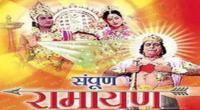
Apna Desh Full HD Movie Download
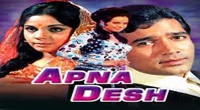
Mahabali Hanuman Full HD Movie Download
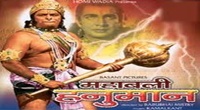
Sapoot Full HD Movie Download

Saheb Bahadur Full HD Movie Download

Ganda Hendathi Full HD Movie Download

Woh Kaun Thi (1964) Full HD Movie Download
.jpg)
Most Wanted (Marathi) Full HD Movie Download
.jpg)
Bakula Namdeo Ghotale Full HD Movie Download
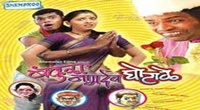
Sati Sukanya Full HD Movie Download

Swarg Aashram Full HD Movie Download
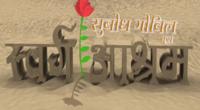
Lal Salam Full HD Movie Download
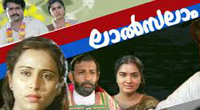
Sundarimare Sookshikkuka Full HD Movie Download

Dhum Full HD Movie Download

Maro Charithra Full HD Movie Download
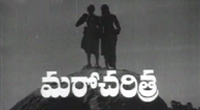
Chelleli Kapuram Full HD Movie Download
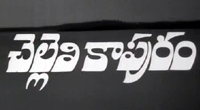
Rowdilaku Rowdilu Full HD Movie Download

Dukanam Full HD Movie Download
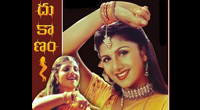
Triloka Sundari Full HD Movie Download
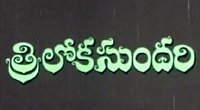
Daag: A Poem of Love Full HD Movie Download
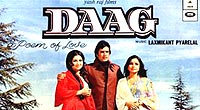
Download latest Movie from bollywood
- 1> baaghi 3
- 2> THE SKY IS PINK MOVIE FULL STORY AND REVIEW
- 3> Luka Chuppi
- 4> TO ALL THE BOYS I’VE LOVED BEFORE
- 5> Kabir Singh
- 6> Street Dancer 3D
- 7> Simmba
- 8> Gone Girl
- 9> The Girl Who Lived
- 10> Ludo
- 11> DILWALE DULHANIA LE JAYENGE
- 12> GUILTY
- 13> The Godfather
- 14> Adventures of Rusty
- 15> Sooryavanshi
- 16> Satyameva Jayate 2
- 17> Thappad
- 18> Bhool Bhulaiyaa 2
- 19> KGFChapter 2
- 20> Mardaani 2
- 21> Pinjar
- 22> Shivaji maharaj
- 23> Ek Villian 2
- 24> Hungama 2
- 25> Divergent
- 26> Mumbai Saga
- 27> The Internship
- 28> HIT (telugu)
- 29> Panga
- 30> The perfect date
- 31> 16 December
- 32> Gopala Gopala (Telugu)
- 33> Brahmastra
- 34> Gangubai Kathiawadi
- 35> Manmadhudu
- 36> Nenu local
- 37> Mahanati
- 38> Shatamanam bavathi
- 39> Lagaan
- 40> After
- 41> MOM
- 42> Shamshera
- 43> Raguvaran BTech
- 44> Khakee
- 45> The villain
- 46> OM
- 47> Mr. perfect
- 48> Bueatifull mind
- 49> Hichki
- 50> Gabbar Singh
- 51> Jogi
- 52> Before Sunrise
- 53> Before Sunset
- 54> Before Midnight
- 55> The Big Bull
- 56> Top Gun: Maverick
- 57> The Purge
- 58> The Sky is Pink
- 59> Laxmmi Bomb
- 60> Sadak 2
- 61> Sufna
- 62> Prithviraj
- 63> PK
- 64> Coolie No 1(2020)
- 65> Black Widow
- 66> Dear Zindagi
- 67> Dil Bechara
- 68> PHIR HERA PHERI
- 69> WAR
- 70> Dostana
- 71> RRR: Roudram Ranam Rudhiram
- 72> Maidan
- 73> Dabbang 3
- 74> Chhalaang
- 75> life as we know it
- 76> SherShaah
- 77> Sandeep Aur Pinky Faraar
- 78> Event Horizon
- 79> 83
- 80> Radhe: Your Most Wanted Bhai
- 81> Gunjan Saxena: The Kargil Girl
- 82> Mr India
- 83> Vivah
- 84> Anokha Bandhan
- 85> Ghost
- 86> Bhoot: Part One - The Haunted Ship
- 87> Haseen Dilruba
- 88> Laal Singh Chaddha
- 89> Qismat
- 90> Rajput
- 91> Drive
- 92> Dil Chahta Hai
- 93> Dil Ki Baazi
- 94> Dil Ka Rishta
- 95> Teesri Manzil
- 96> Dil
- 97> Love Aaj Kal
- 98> Khaali Peeli
- 99> Bunty Aur Babli 2
- 100> Atrangi Re
- 101> Gulabo Sitabo
- 102> Jodi
- 103> Suraj Pe Mangal Bhari
- 104> Deewana
- 105> Attack
- 106> Sardar Udham Singh
- 107> Toofan
- 108> THE LOVEBIRDS
- 109> Jersey
- 110> Ginny Weds Sunny
- 111> Thalaivi
- 112> Shiddat
- 113> Angels vs Zombies
- 114> Koi Mil Gya
- 115> Thank God
- 116> Bhuj: The Pride of India
- 117> Hum Aapke Hain Kaun
- 118> The Platform
- 119> Bird Box
- 120> Roohi Afzana
- 121> Torbaaz
- 122> Nikamma
- 123> World War Z
- 124> Extraction
- 125> Train to Busan
- 126> Life of Pi
- 127> SHAADI MEIN JROOR AANA
- 128> Himmat Aur Mehnat
- 129> To All The Boys: P.S. I Still Love You
- 130> Mimi
- 131> Good Newwz
- 132> Shubh Mangal Zyada Saavdhan
- 133> Raabta
- 134> Harry Potter and the Philosopher's Stone
- 135> Harry Potter and the Chamber of Secrets
- 136> Chhapaak
- 137> War of the Worlds
- 138> Harry Potter and the Prisoner of Azkaban
- 139> Harry Potter and the Goblet of Fire
- 140> MURDER MYSTERY
- 141> Shakuntala Devi
- 142> Bachchan Pandey
- 143> Jayeshbhai Jordar
- 144> Sheer Qorma
- 145> Saina
- 146> 'O' Pushpa I hate tears
- 147> Kedarnath
- 148> MS Dhoni The Untold Story
- 149> Chhichhore
- 150> Badhaai Ho
- 151> Unstoppable
- 152> Oz the Great And Powerful
- 153> The Girl on the Train
- 154> Haathi Mere Saathi 2020
- 155> The Conjuring: The Devil Made Me Do It
- 156> Gandhi Se Pehle Gandhi
- 157> The Song of Scorpions
- 158> Srimanthudu
- 159> Hello Guru Prema Kosame
- 160> Beauty and The Beast
- 161> Black Panther
- 162> Charlie and the Chocolate Factory
- 163> Bole Chudiyan
- 164> Fidaa
- 165> Duvvada Jagannadham
- 166> Bruce Lee: The Fighter
- 167> Hyper
- 168> Yaara
- 169> Red (2020)
- 170> Shivam
- 171> That Is Mahalakshmi
- 172> Nishabdham
- 173> Aashram 2020 web series
- 174> Laxmii
- 175> Mismatched
- 176> STUDENT OF THE YEAR 2
- 177> NAIL POLISH
- 178> Ramprasad Ki Tehrvi
- 179> KAAGAZ
- 180> 12 o Clock
- 181> The Power
- 182> bolo hau
- 183> Tribhanga
- 184> JAMUN
- 185> Madam Chief Minister
- 186> Maasaab
- 187> Aadhaar
- 188> Tanhaji
- 189> Bhaagi 3
- 190> Bhootnath
- 191> MALANG
- 192> Jai Mummy Di
- 193> Haathi Mere Saathi 2021
- 194> Shakeela
- 195> Unpaused
- 196> Annayya
- 197> Vamsoddharakudu
- 198> Mrugaraju
- 199> Narasimha Naidu
- 200> Sankranti
- 201> Manasu Maata Vinadhu
- 202> Anjaane
- 203> Apaharan
- 204> Bachke Rehna Re Baba
- 205> Bewafaa
- 206> Roohi
- 207> Radhe
- 208> Zindagi Khoobsoorat Hai
- 209> Yeh Mohabbat Hai
- 210> Yeh Kya Ho Raha Hai?
- 211> The Tomorrow War
- 212> DehradunDiary
- 213> Meri Shaadi Karaoo
- 214> Matruu Ki Bijlee Ka Mandola
- 215> No One Killed Jesica
- 216> Aag Ka Goola
- 217> Eight Million Dollars
- 218> Three Hundred
- 219> Cats and Dog
- 220> Decoy
- 221> Gold Rush
- 222> You Have Got Mail
- 223> Final Destination three
- 224> Tofan
- 225> Jungle
